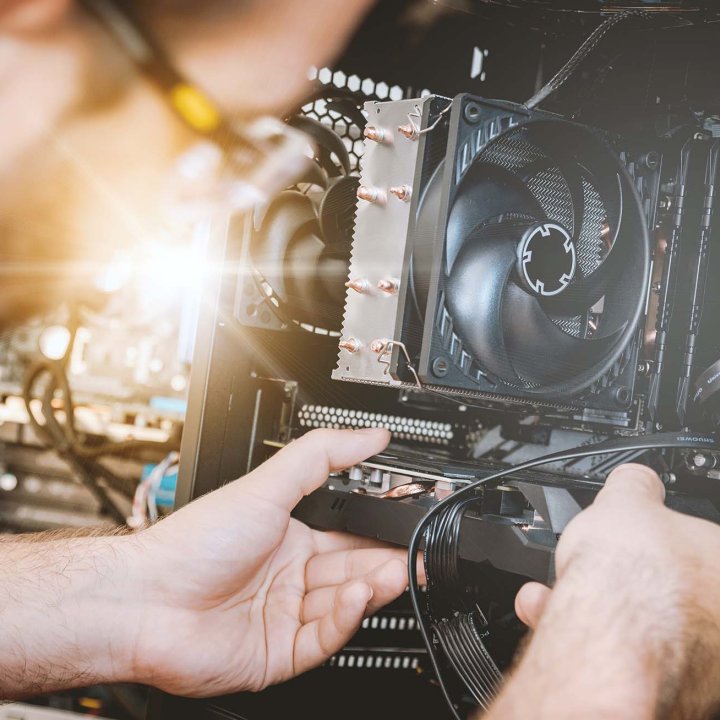
Should you upgrade or invest in a new CMS?
Consider what generates most long term value between upgrading or investing in a new CMS.
Written by Vegard Ottervig on
Whether you’re looking to clean up your content, restructure your website, or start a new digital project—upgrading your CMS might seem like an easy answer to overhauling your digital experiences.
However, before you opt in for a new upgrade, pause and ask yourself:
- What did you try to accomplish with the current solution?
- Have you succeeded?
- Have your requirements changed?
- How can you make sure the CMS catches up?
Depending on your answers, you might need more than a simple upgrade. And according to SoftwareReviews, 80% of companies with legacy solutions become more satisfied when changing to vendors with a more modern solution.
This is why you need to thoroughly consider whether you should upgrade or invest in a new CMS.
Changing requirements
A CMS upgrade might seem like a quick fix for your content woes, but this isn’t always the case. Your requirements might have changed drastically in the past few years—for example, if you require a new and modern website, a new content model, or a new content strategy.
This all falls into the need to future-proof your customer journey. While many digital transformation trends have been a reality for years already, the fact is that the plain, old website may not automatically fulfill your goals in the digital realm anymore. Future-proofing means building a rock-solid foundation for your content to reach the right person, at the right time, in the right place.
And this again entails the increasing need for structured content and headless CMS—the ability to let different channels show your content in different contexts. Does your current CMS support headless capabilities—i.e. the ability to treat content independently from e.g. website presentation?
If you have such changing requirements, your old CMS vendor might not be right for you—even with an all-bells-and-whistles upgrade.
See also: 5 signs that it's time to change your CMS »
Three things to look out for
Below we’ve pulled together some of the three important aspects to consider when assessing your CMS strategy.
1. Quality
Is your content in need of a quick tidy up, or a full-blown deep clean? If it’s the latter, upgrading your CMS might not cut it.
Instead, starting from scratch will help you completely redevelop your website and your digital experiences, giving your brand a shake-up in the process.
And it’s not just about the way your site or app looks. Modern and future-proof content management systems often have more efficient coding, helping create a more responsive and faster running site. And, most important of all, they support headless content strategies—which can aid your content in an increasingly omnichannel world.
2. Costs
If you think that upgrading a legacy CMS will always be cheaper than buying a new one, think again. Imagine buying a new car. At first, it probably seems like better value to keep the old car, but after paying a small fortune to maintain increasingly more quirks and rust, you might be left wondering why you didn’t just invest in the new model—which also comes equipped with improved safety, better comfort, and more modern features.
It’s often the same with your CMS. The costs involved in constantly upgrading and tweaking the technical debt of your current system can soon add up, making it more economical to start from scratch with a new and more efficient platform.
In either case, you will have to weigh the pros and cons up against each other in terms of financial benefit. Is every new feature worth it? Also, be sure to research cost and pricing models of both current and prospective solutions, and ask yourself what the long term cost will be, what scaling will cost, and how costly it is to train developers and editors in a new potential system.
See also: How to maintain and update your existing web content »
3. Security
Security should be at the top of your priority list when it comes to reviewing your CMS, but if it’s not up to scratch, what can you do about it?
In many cases, a simple upgrade of a fundamentally flawed system isn’t enough. Even if you try to patch up the security, eagle-eyed hackers will be able to find any weak points in obsolete software and services, putting your data—and that of your customers—at risk.
To avoid any harm to your online credibility, look for platforms that focus on security. Think about encryption, resilience, and where data is stored. To ensure the security of your mission-critical digital experiences, you can look into OWASP.
***
However committed you are to your old vendor, it’s always important to pause and review your strategy—not only in regard to your CMS, but to your business as a whole.
Figuring out your priorities when it comes to features, quality, cost, and security can help you work out whether you need to invest in a new CMS, or an entire overhaul of your current CMS.
First published 14 June 2018, updated 12 May 2021 and 5 January 2022.

